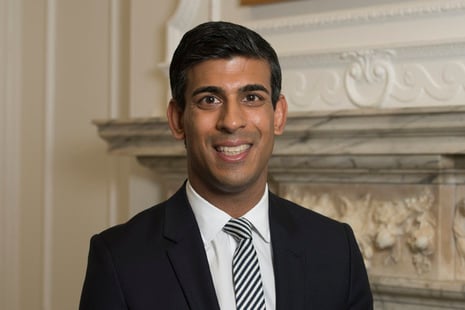IFAC accelerates engagement on anti-corruption and anti-money...
As evolving threats such as climate change, artificial intelligence, and geopolitical conflicts put increasing...
READ MORE
Delivering a low tax, higher growth economy is set to form the cornerstone for the Chancellor’s economic vision when he delivers the Mais lecture on Thursday (24 February).

Chancellor Rishi Sunak will set out his vision for a lower tax, dynamic market economy, when delivering his first major speech at the annual Mais lecture.
Setting out his economic vision the Chancellor resolves to “create the conditions for private businesses and individuals to thrive”.
Dismissing the claim “tax cuts always pay for themselves” the Chancellor will argue for sustainable tax cuts to turbocharge UK growth.
“I firmly believe in lower taxes,” the Chancellor said.
“The most powerful case for the dynamic market economy is that it brings economic freedom and prosperity. And the best expression of that freedom is for all of us to be able to make decisions about how to save, invest or use the money we earn.
“The marginal pound our country produces is far better spent by individuals and businesses than government.”
The Chancellor is set to emphasise the importance of cutting taxes responsibly and will challenge the idea that taxes should be cut even where that would leave spending pressures unfunded.
“I am disheartened when I hear the flippant claim that ‘tax cuts always pay for themselves’. They do not,” he said.
“Cutting tax sustainably requires hard work, prioritisation, and the willingness to make difficult and often unpopular arguments elsewhere.
“As a machine for innovation and growth the free market is positively correlated with almost everything we imagine is desirable for humanity: higher living standards, greater wellbeing, longer lives lived in greater leisure, freedom and peace.”
The Chancellor’s comments form part of his overall vision for a better economy that involves boosting growth and productivity.
“Capital. People. Ideas. Three priorities to deliver higher productivity, tied with one golden thread: that what government does is far less important than creating the conditions for private businesses and individuals to thrive,” he said.
Growth in all three of these areas is already being supported by the government, with public sector net investment reaching its highest sustained level as a proportion of GDP since the 1970s, dramatically improved school and university performance in recent years and improvements to access to finance through initiatives like British Patient Capital, the Future Fund and reforming Solvency II.